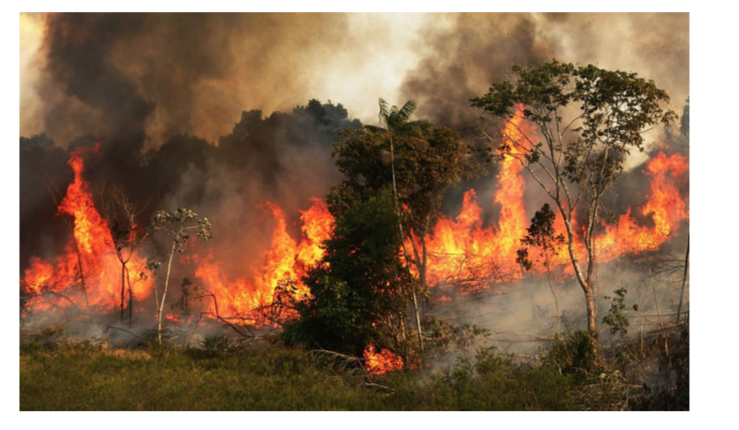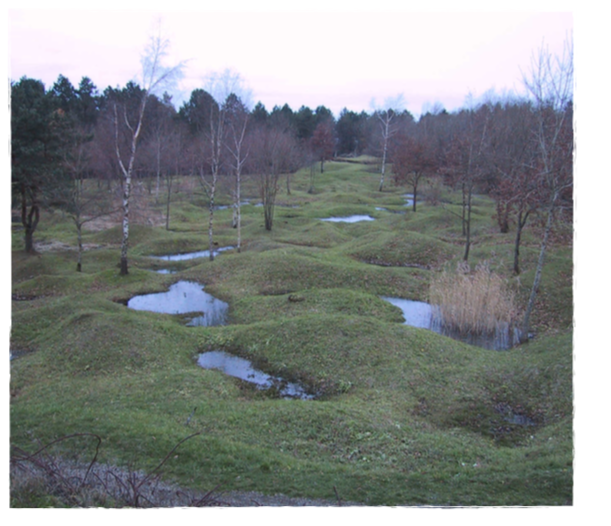Spring 2020
LARP 780-003
Nicholas Pevzner
Friday, 1:30-4:30pm
Landscapes of energy extraction and carbon sequestration may be located far from one another, yet they are closely connected through the dynamics of the carbon economy, the legacy patterns of territorial power and control, and of the cultural narratives that we tell. This seminar will delve into historic and emerging energy infrastructure and its deeply-held cultural narratives, unpack the politics of carbon markets and carbon trading, and analyze some promising carbon sequestration practices and their cultural landscapes.
The first part of the class will look at how the large-scale infrastructure projects built to enable extraction have long acted as powerful organizers of territory: how energy infrastructure projects have historically been used to project power, extract value, and reshape patterns of labor and settlement — whether it’s the canals that were built to support coal extraction in Pennsylvania, the geography of oil pipelines and oil ports, or emerging kinds of renewable energy that continue to carry old legacy patterns of power. The second half — landscapes of sequestration — will survey a range of landscape strategies with the potential to “draw down” the atmospheric carbon pool — from new technological approaches, to new kinds of agriculture and forestry management, to coastal mangrove restoration and the farming of coastal “blue carbon.” We will investigate the ecological principles behind these strategies, and critically analyze the spatial and cultural effects that these practices can have.
From carbon markets to carbon capture, these practices are not neutral: this seminar will dig into the contested narratives of how carbon should be managed, and critically interrogates the spatial choices that will underpin the energy system of the future.
Spring 2020
History 060
Marcy Norton
Anne Berg
Tuesday/Thursday, 12:00 - 1:30 PM

Course Description
What is the environment and when did it come to be? Is the environment different from nature? If so how? If not, why not? These days, perhaps, we think of the environment as something that we inhabit, shape, experience, destroy. This course explores the changing relationships between human beings and the natural world from early history to the present. We will consider the various ways humans across the globe have interacted with and modified the natural world by using fire, domesticating plants and animals, extracting minerals and energy, designing petro-chemicals, splitting atoms and leaving behind wastes of all sorts. Together we consider the impacts, ranging from population expansion to species extinctions and climate change. We examine how human interactions with the natural world relate to broader cultural processes such as religion, colonialism and capitalism, and why it is important to understand the past, even the deep past, in order to rise to the challenges of the present.
Spring 2020
History 234
Anne Berg
Wednesday, 2 - 5PM

Course Description
This seminar examines the human and environmental consequences of violent conflict from the South African War at the beginning of the 20th century to the War on Terror. War violently transforms the social and physical environment. War reshuffles ideologies, reimagines futures and reshapes alliances, destroys bodies, spaces, societies, habitats, ecosystems and cultures. And of course, there’s no war that doesn’t produce a whole host of wastes, and as a result, inspires a multitude of strategies to combat and eradicate them. In this course, we approach war as an engine of destruction and transformation rather than as politics gone awry. The wastes of war will serve as our focal point as we study the new worlds (technological, social and environmental) that war not merely leaves in its wake but systematically generates. Critically examining two key categories – “waste” and “war” in tandem, we discover how together they fundamentally restructure our social, cultural and natural worlds in unexpected ways.
Spring 2020
ANTH 031
Kristina Lyons
Tuesday 3:00-6:00 PM
In less than half a decade, the idea that "nature" possesses inalienable rights akin to human rights has gone from a strictly theoretical concept to the basis of policy changes in several countries and U.S. municipalities. This first-year seminar will introduce students to current legal, political, ethical, and practical debates about the implementation and impacts of granting “rights to nature” in these different contexts. We will begin by examining how the Community Environmental Legal Defense Fund (CELDF) supported citizens of Tamaqua, Pennsylvania to write the world's first local "rights of nature" ordinance. We will then go on to compare the politics of "rights of nature" cases in Ecuador, New Zealand, India, and Colombia, and beyond. We will pay particular attention to the way biocentric constitutional moves may transform concepts and understandings of environmental justice and socio-environmental conflicts. In particular, how the recognition of "nature" as a victim of war may transform understandings of violence, and hence, approaches to constructing peace and engaging and reparative and restorative practices within the larger framework of planetary and community efforts to mitigate climate change. Lastly, we will explore the possibilities and tensions between community decision-making, the "rights of nature," and national level policies regarding the intensification of extractive activities, questions of territorial ordinance, struggles over environmental racism, and the colonial impacts of pollution. Beyond social science or legal documents, we will also engage with literary texts and films to help us explore these issues. The final project for this seminar will integrate multimodal methods with contemporary environmental issues to experiment with doing public engaged environmental humanities work.
This seminar fulfills the Sector 1 (Society) General Education requirement.
